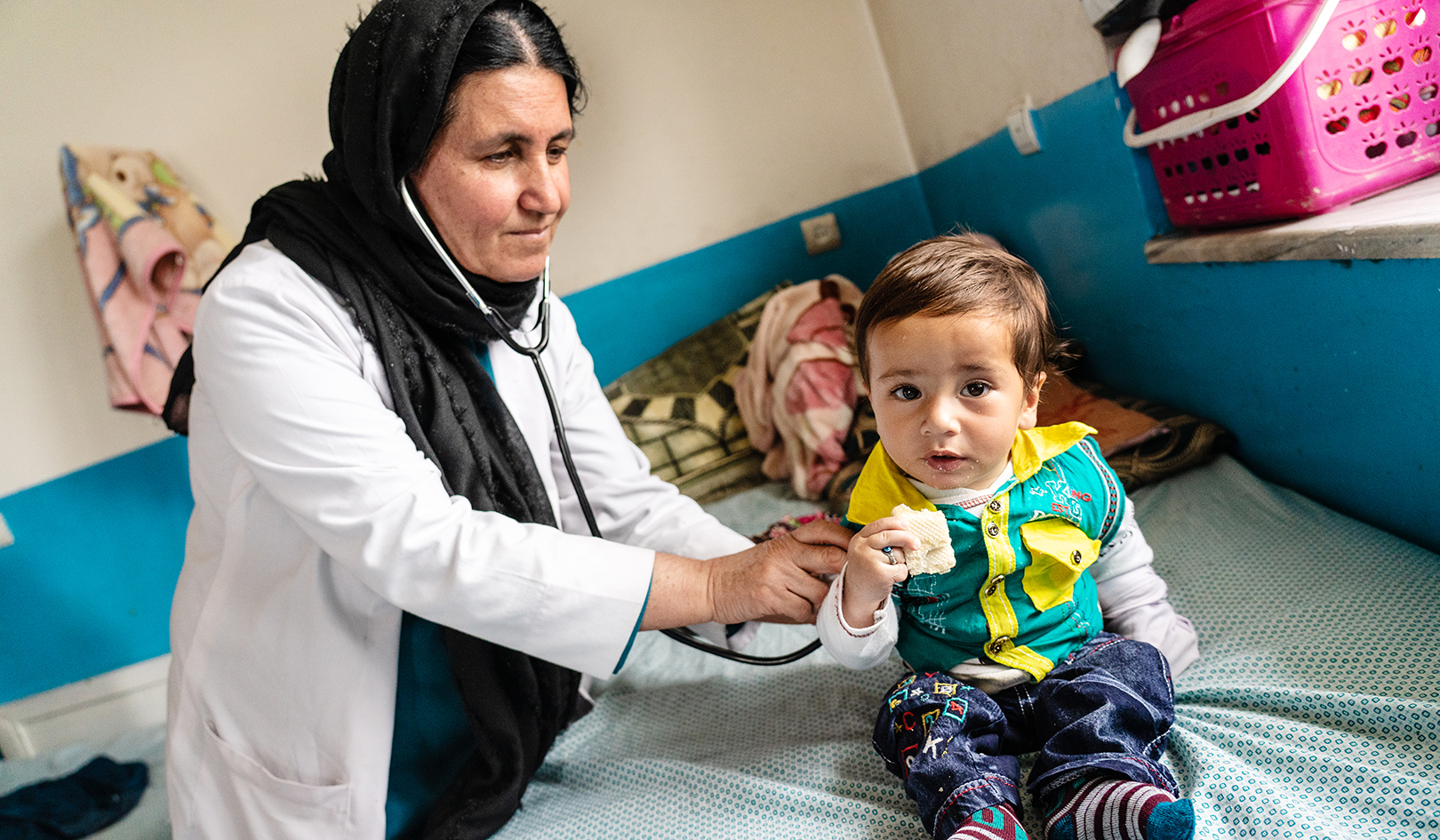
Healthcare
SCA’s Health Activities in 2023:
SCA is implementing Health Emergency Response (HER) project in Wardak and Nuristan provinces
SCA is implementing the Basic Package of Health Services (BPHS) and Essential Package of Hospital Services (EPHS) under HER contract funded by World Bank (WB) channels through UNICEF in Wardak and Nuristan provinces from January 2023. The project ensures access to health services to all residents, 670,000 people in Wardak and 164,400 in Nuristan, through 77 health facilities and 387 health posts in Wardak and 37 health facilities and 168 health posts in Nuristan.
Improving delivery of essential Reproductive Maternal, Newborn, Child and Adolescent Health (RMNCAH) services in hard-to-reach areas through the Family Health House (FHH) facilities.
The FHH model was piloted by the Ministry of Public Health, with technical and financial support from UNFPA to increase access to basic RMNCAH services in the country. The FHH, or Ashiana-e-Sehi, is a community-based health facility established in areas that lie at least 10 kilometres or at least 3 hours walk from the nearest BPHS facility. It serves a population of 1,500–3,000 people and is operated by a community midwife. The FHH model comprises of four components, the FHH itself, one health post, two Family Health Action Groups (FHAGs), and one Community Health Shura.
The FHH project was funded by UNFPA and was awarded to SCA in early 2022. The project has 29 FHHs in Samangan and 25 FHHs and a Community Midwifery Education (CME) school with 16 students in Nuristan province. The project will continue in 2023 in both Nuristan and Samangan provinces.
Community Midwifery Education (CME) Programme:
To address the shortage of midwives, SCA through its own fund implemented Community Midwifery Education Programme in Laghman, Samangan, and Wardak provinces. Until May 2022, a total of 585 midwives graduated from SCA-managed community midwifery schools in Laghman, Samangan, Wardak, Kunduz, and Sar-e-Pol provinces. After the graduation of 25 students in May 2022, the CME programme ended in Wardak province. To fill the gaps of community midwives in Parwan province, SCA initiated Midwifery Diploma Programme for 25 students in Parwan province and the Midwifery Bridging Programme for 25 more students with the Ministry of Higher Education in Kabul.
Learning for Healthy Life:
SCA is educating illiterate women and girls in reproductive age in Laghman, Wardak, Balkh, Parwan, and Samangan provinces through the Learning for Healthy Life programme (LHL). The 5,750 students will be able to make decisions regarding their reproductive health.
Midwives Mentorship Programme:
To develop the professional capacity of midwives and make them able to provide quality and safe maternal and newborn services, SCA in partnership with Afghan Midwives Association (AMA) kicked off the midwives’ mentorship programme in Sar-e-Pul, Samangan, and Wardak provinces for the first time in 2010-2011. In 2023, midwives at 40 remote health facilities in Parwan, Kapisa, Panjshir, and Logar provinces will benefit from this project.
Smart Paper Technology:
In Afghanistan, the Health Management Information System (HMIS) data is collected on paper-based systems resulting in multiple issues such as inaccuracy, inconsistency, incompleteness, and limited use of data for taking improvement actions. To address these issues, Smart Paper Technology (SPT) was introduced by Shifo Foundation, in collaboration with the Ministry of Public Health of Afghanistan (MoPH) and the Swedish Committee for Afghanistan in 2016. Smart Paper Technology (SPT) solution can bypass the infrastructural challenges, whilst bringing the same benefits of fully digital health solutions at a low operating cost. SCA with technical support from Shifo Foundation supports the MoPH in the implementation of Smart Paper Technology in Wardak and Laghman provinces with aim of gradual expansion to other provinces. SCA has been able to integrate SPT into the DHIS2 (MoPH data warehouse). In Wardak province, the SPT project operated normally in all 68 immunisation sites and was expanded to 78 RMNCH sites after the successful piloting of the project. In Laghman province, the SPT EPI component was fully implemented and operational in all health service delivery points that consisted of 65 immunisation fixed centres, 368 outreach, and 269 mobile sites.